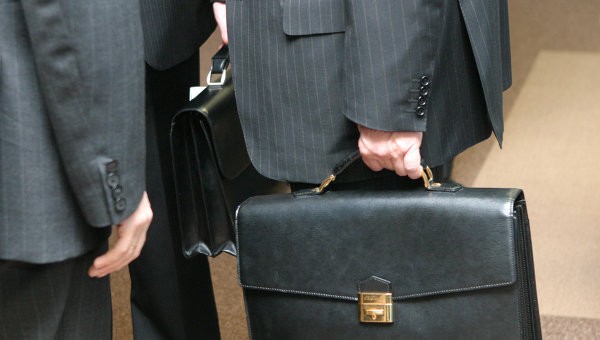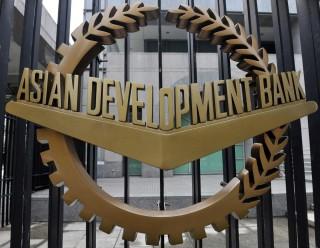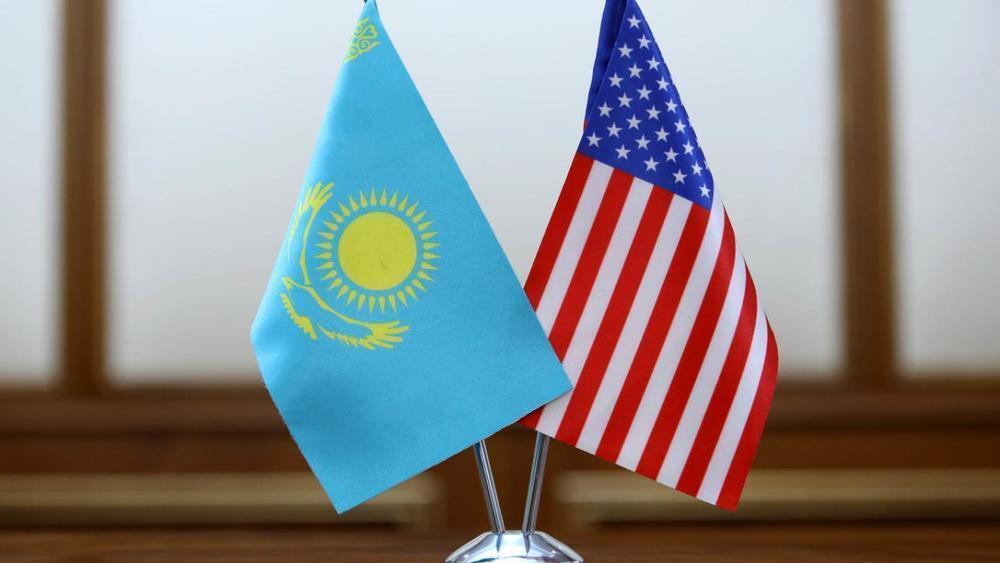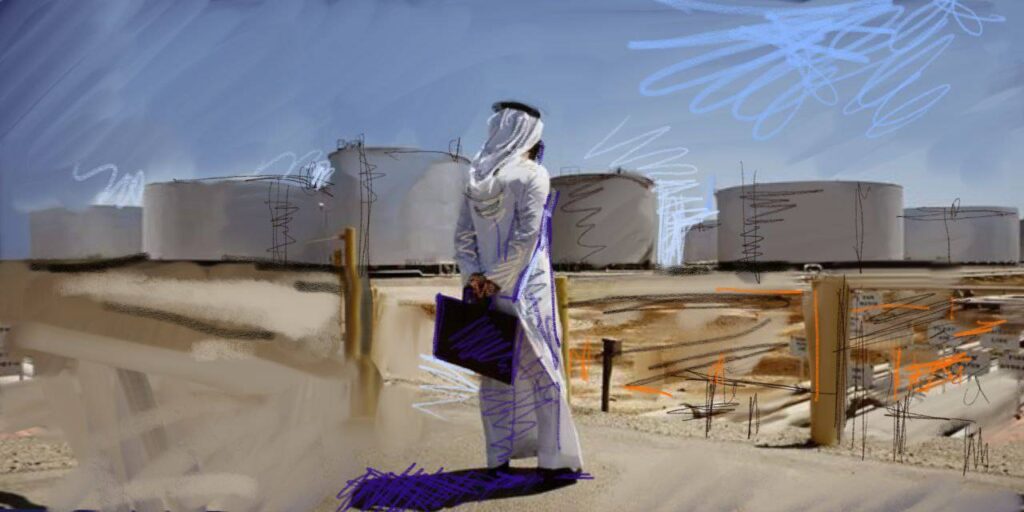BISHKEK (TCA) — Free economic zones can be a driving force to attract foreign direct investment and technologies and accelerate the process of industrialization and increase trade in Central Asia.
FEZ entities operate on preferential terms and enjoy tax, customs, administrative and financial benefits. As countries develop, FEZs can be transformed from mere manufacturing sites to hubs for innovation and modern services in the region, the Asian Development Bank (ADB) says.
English law in Uzbekistan’s FEZ
The Uzbek authorities decided to implement the English law system at the Navoi Free Economic Zone, Uzbekistan Justice Minister Ruslan Davletov said at his meeting with Vice-President of the UK Law Society Simon Davis in London on June 27, the Ministry’s press service reported.
There are three FEZs in Uzbekistan — Navoi, Angren and Jizakh. Uzbekistan’s FEZs started activity in 2008 and are rather young compared to neighboring countries.
The Navoi FEZ participants are exempted from all taxes and customs duties, except VAT, for a period of three to 10 years, depending on the investment size. The FEZ entities are protected against tax changes in the country, and they will pay current taxes until 2030.
At the meeting in London, the Uzbek Justice Minister stressed the importance of creating an appropriate infrastructure and system to ensure the full functioning of English law as a tool for the legal regulation of the FEZ participants’ actions.
According to Davis, the use of English law will have a beneficial effect on the development of Uzbekistan as a whole, because the world business trusts this system. He expressed readiness to assist Uzbek colleagues in implementation of this practice in Uzbekistan.
A delegation of the Justice Ministry of Uzbekistan also visited Nur-Sultan (Kazakhstan) to study the practice of English law at the Astana International Financial Center (AIFC).
The Uzbek delegation discussed with the Registrar and the Chief of Staff of the AIFC Court, Christopher Campbell-Holt the principles and norms of the English law, as well as the risks and expected results of creating the special legal regime.
The English legal system has a reputation of being efficient and fair and attracts many foreign companies and citizens. According to the Commercial Courts Report 2018 by Portland Communications, litigants from 69 countries participated in cases before the London courts between March 2017 and April 2018.
Kazakhstan develops existing FEZs and creates new ones
Investments attracted to Kazakhstan’s free industrial zones will reach 520 billion tenge by 2021, Minister of Industry and Infrastructure Development of Kazakhstan Roman Sklyar said.
This will allow to launch 173 new enterprises, 40 of which with 163 billion tenge investment are planned to be commissioned in 2019. Additional 1,200 jobs will be created due to the opening of new industries, Khabar 24 reported.
The most effective is the Ontustik (South) FEZ where one budget tenge attracted 15.5 tenge of direct investment. A full-fledged textile cluster has been created there with the participation of small and medium-sized businesses, which function independently without state support.
At the Pavlodar FEZ involved in aluminum production, one budget tenge attracted more than 12 tenge of investments.
To develop the free economic zones, attract FDI and stimulate exports the Law “On Special Economic and Industrial Zones” was adopted this year. The law simplifies procedures for obtaining state support and increases the requirements for managing companies.
According to Minister Sklyar, the Park of Innovative Technologies FEZ was transferred to the management of Almaty administration, and the FEZ will be involved in new effective projects.
The largest number of free economic zones is in the Turkestan region — seven of the 12 existing ones in the country.
International companies are attracted to the FEZ management in Kazakhstan. DP World participates in the Khorgos-Eastern Gate FEZ management to develop it up to the international level. This company manages the Jebel Al special economic zone in Dubai (UAE), which is among the top ten in the world FEZ rating, Sklyar said. The Ministry plans to attract DP World to the Aktau Sea Port SEZ management.
In addition to the 12 existing FEZs, the Ministry of Industry and Infrastructure Development is considering the creation of four new FEZs in Petropavlovsk, Kostanai, Aktobe, and Baikonur.
“The Baikonur cosmodrome’s uniqueness provides us with excellent opportunities to work with leading companies and promising technology start-ups,” Kazakhstan President Kassym-Zhomart Tokayev said during his visit to the Kyzylorda oblast.
Due to the first stage of Baikonur optimization hundreds of people were laid off and need jobs.
Tajikistan completes oil refinery construction at FEZ
Four free economic zones — Sugd, Punch, Dangara and Ishkashim — have been operating in Tajikistan since 2005. Seventy-one domestic and foreign companies including 11 new entities were registered there last year.
Each zone has its own specialization and different starting conditions for functioning due to differences in the economic development of the host regions and remoteness of the zones from trade routes. The term of FEZs functioning is 50 years.
Tajikistan FEZs sold products worth $41.8 million last year, four-fold more than in 2016, TajikTA reports.
To launch the first stage of an oil refinery at the Dangara Free Economic Zone in southern Tajikistan, it is necessary to complete the construction of a 1.5 kilometer railway to the facility and a cargo terminal, Avesta news agency reported.
The construction of the oil refinery at the Dangara FEZ began in March 2014. The launch of the first stage was postponed several times.
The country’s need for motor fuel (over 1.6 million tons per year) is almost completely covered by imports.
Turkmenistan to create FEZs
Free economic zones may appear in Turkmenistan by 2023. The Government is now developing a concept for that.
The FEZs will speed up the creation of joint ventures to produce high-quality products, thereby increasing the export potential and reducing the country’s import dependence.
According to the Law “On Free Economic Zones”, there will be tax and customs privileges, as well as a special procedure for pricing and currency transactions in FEZs. The law also provides for special technical innovation zones including technology parks and technopolises.
It is planned to create a logistics center with FEZ privileges at the renovated Turkmenbashi Caspian seaport. Services will be provided for freight forwarding and transport companies including cargo handling and storage, vehicle maintenance, customs, brokerage, insurance, and information.
Turkmenistan plans to involve Caspian and Central Asian countries, as well as Europe and the Middle East states, in this free economic zone.
The Turkmenbashi port will increase the transit of goods through Baku, because large cargo traffic to Europe goes through Azerbaijan. This will be possible due to an increase in the transshipment capacity of the Turkmenbashi port from 10 million tons to 25 million tons per year, 1news.az reported. The renovated port can increase container traffic due to the new modern container terminal with high-capacity ship-to-shore (STS) loaders.
FEZ residents’ number decreasing in Kyrgyzstan
Of the eight previously active FEZs in Kyrgyzstan, only five have left — Karakol, Naryn, Bishkek, Maimak, and Leilek. The remaining were eliminated due to the lack of investment.
According to the Kyrgyz Economy Ministry, of the five FEZs, only Naryn и Bishkek FEZs are currently operating. Of about 300 enterprises in the Bishkek FEZ, 123 companies have fully foreign capital and 49 are joint ventures. There is a negative trend towards a decrease in the FEZ residents. Since 2014, more than 360 business entities have been liquidated.
Kyrgyzstan’s FEZs face many infrastructure problems including lack of electricity, water supply and sewage systems, as well as administrative barriers. The current taxation system, political and legislation instability hinder the FEZ development.
Since 1992, the free economic zones legislation has been changed nine times and not in favor of entrepreneurs. The current taxation system does not give stimulus to FEZ entities and they do not seek to expand production and increase jobs.
Since the beginning of this year, the tax and customs exemptions for the FEZs have expired. The Economy Ministry submitted amendments to the law on the FEZ for public discussion. The business expected that these amendments would extend the preferential customs and tax regimes but the bill mainly provides for transferring control of the FEZ from the state to private entities.
“We fear drastic changes in legislation,” said Ainura Chekirova, advisor to the President of the Central Asia FEZ Development Corporation.
“The legislation stability is an important factor for investors to be sure whether to invest in the country or not. The absence of predictable legislation creates risks for investors. As a result, many investment projects remain frozen in the Bishkek FEZ until investors see that the Government is ready to protect their investments,” she said.
The conditions under which investors entered in the 1990s have already been lost.
“With each new law, we lose certain advantages. For example, in the 1990s the law allowed to lease land plots for 90 years, and the new law edition — for 49 years. Investors came here with certain expectations and invested their money for the 90-year period,” Chekirova said.
There is an urgent need to revise the current FEZ legislation. Business people are considering moving to other free economic zones where conditions are more attractive and stable, particularly in Kazakhstan.









